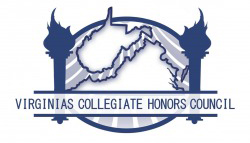From Peace to Rearmament: Fitting Post-War Japan in an American System 1945-1952
Location
Taylor 309, Madison Union, JMU
Start Date
4-6-2019 10:50 AM
Description
After World War II, the United States occupied Japan under Douglas MacArthur, who oversaw its demilitarization and democratization from 1945-1952 (MacArthur removed in April of 1951). While under American guidance, Japan revised its constitution, revoked war, and made the emperor a symbol of the state with no political power. On July 8, 1950, shortly after the beginning of the Korean War, MacArthur mandated that Japan form a National Police Reserve [NPR]. This study considers scholarly debates surrounding the formation of the NPR. Additionally, it explores reasons for America’s breakaway from early occupation policy during the Korean War. It argues that the American occupation never abandoned democracy as a key emphasis, but used it as a guise to extend American imperial rule. Furthermore, it maintains that the NPR was a military force, even while some recent scholarship contests this idea.
Presentation Type
Presentation
From Peace to Rearmament: Fitting Post-War Japan in an American System 1945-1952
Taylor 309, Madison Union, JMU
After World War II, the United States occupied Japan under Douglas MacArthur, who oversaw its demilitarization and democratization from 1945-1952 (MacArthur removed in April of 1951). While under American guidance, Japan revised its constitution, revoked war, and made the emperor a symbol of the state with no political power. On July 8, 1950, shortly after the beginning of the Korean War, MacArthur mandated that Japan form a National Police Reserve [NPR]. This study considers scholarly debates surrounding the formation of the NPR. Additionally, it explores reasons for America’s breakaway from early occupation policy during the Korean War. It argues that the American occupation never abandoned democracy as a key emphasis, but used it as a guise to extend American imperial rule. Furthermore, it maintains that the NPR was a military force, even while some recent scholarship contests this idea.


